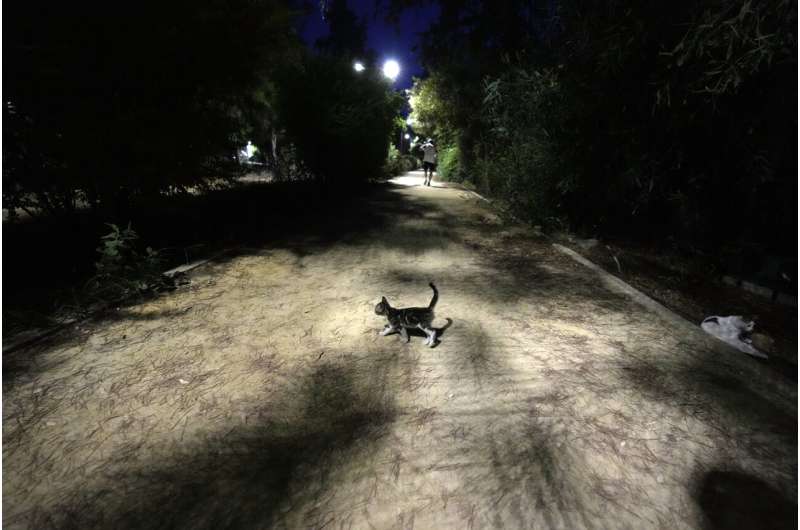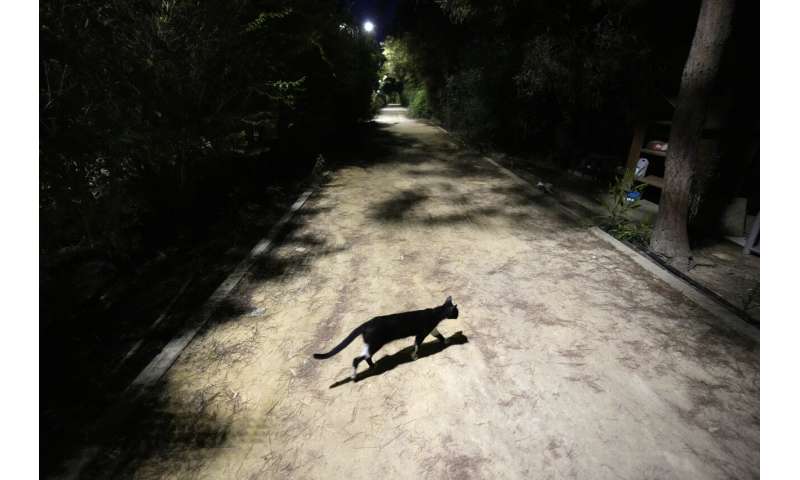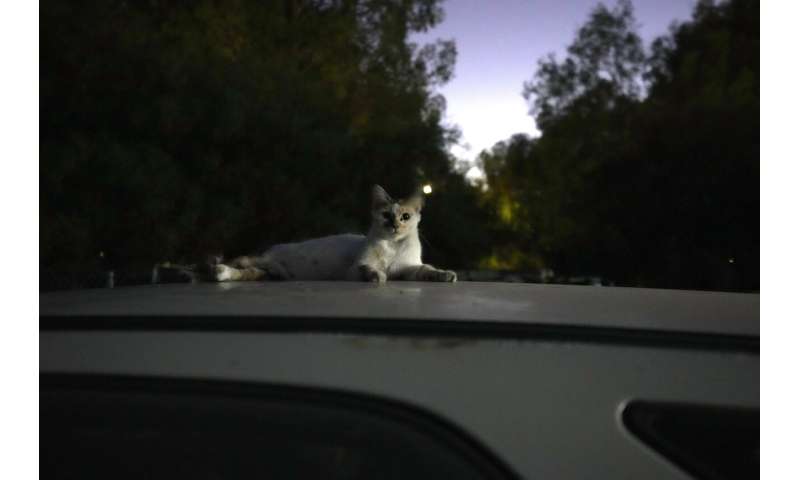Click here to sign in with or
Forget Password?
Learn more
share this!
1
Twit
Share
Email
July 19, 2023
This article has been reviewed according to Science X’s editorial process and policies. Editors have highlighted the following attributes while ensuring the content’s credibility:
fact-checked
reputable news agency
proofread
The head of the Cyprus veterinarians association on Wednesday dismissed as greatly exaggerated the claims that a local mutation of a feline virus has killed as many as 300,000 cats on the small Mediterranean island.
The director of the Pancyprian Veterinary Association, Nektaria Ioannou Arsenoglou, said the group’s survey of 35 veterinary clinics indicate an island-wide total of only about 8,000 deaths. Arsenoglou said numbers that have been presented by local animal activists and amplified by foreign media outlets “simply don’t add up.”
Arsenoglou told The Associated Press on Wednesday that the local mutation of a feline coronavirus that causes Feline Infectious Peritonitis (FIP) is nearly always lethal if left untreated, but that medication can nurse cats back to health in approximately 85% of cases.
Spread through contact with cat feces, neither the virus or its mutation can be passed on to humans.
Specific medication that can treat both the so-called “wet” and “dry” forms of the illness is very expensive, although Arsenoglou said she was “optimistic” that the government would soon be able secure more medicine.
It’s unclear how many feral cats live in Cyprus, where they are generally beloved and have a long history. According to Byzantine legend, Saint Helen introduced cats to Cyprus to control venomous snakes plaguing the island when she was on her way back to Constantinople after completing her quest to find the cross on which Jesus Christ was crucified.

A Cypriot cat activist who goes by the name Marina Niaou and who maintains a feral cat colony complained to the AP that authorities have been dragging their feet in searching out cheap medication to tackle the spread of the virus.
The mutation came to the attention of veterinarians as well as the island’s multitude of cat caregivers in January this year, with cases continuing to rise steadily until mid-spring when they started to level off, Arsenoglou said.
She said the veterinary association has assembled a task force to monitor the spread of the mutation and inform fellow vets and activists of the latest developments.
The feline coronavirus has been around since 1963. Previous epidemics, including one in Greece more than two decades ago, eventually fizzled out without the use of any medication, Arsenoglou said.
-

A cat crosses a pedestrian road at the main linear park, in the capital Nicosia, Cyprus, Wednesday, July 19, 2023. The head of Cyprus’ veterinarians’ association has dismissed as groundless claims that a lethal mutation of a feline virus has taken the lives of some 300,000 cats, saying they misleadingly depicted the small island nation abroad as a “feline cemetery.” Credit: AP Photo/Petros Karadjias -

A cat rests on a roof of a car, in the capital Nicosia, Cyprus, Wednesday, July 19, 2023. The head of Cyprus’ veterinarians’ association has dismissed as groundless claims that a lethal mutation of a feline virus has taken the lives of some 300,000 cats, saying they misleadingly depicted the small island nation abroad as a “feline cemetery.” Credit: AP Photo/Petros Karadjias -

Cats sit in a shelter at the main linear park, in capital Nicosia, Cyprus, Wednesday, July 19, 2023. The head of Cyprus’ veterinarians’ association has dismissed as groundless claims that a lethal mutation of a feline virus has taken the lives of some 300,000 cats, saying they misleadingly depicted the small island nation abroad as a “feline cemetery.” Credit: AP Photo/Petros Karadjias
Measures have already been enacted to prevent the export of the mutation through mandatory medical check-ups of all felines destined for adoption abroad.
——
Correction note: This story has been edited to reflect that the virus is a local mutation of a feline coronavirus that is not related to COVID-19.
© 2023 The Associated Press. All rights reserved. This material may not be published, broadcast, rewritten or redistributed without permission.
Explore further
Facebook
Twitter
Email
Feedback to editors
2 hours ago
0
6 hours ago
0
9 hours ago
0
9 hours ago
0
9 hours ago
0
2 hours ago
2 hours ago
2 hours ago
2 hours ago
2 hours ago
3 hours ago
3 hours ago
3 hours ago
3 hours ago
4 hours ago
Mar 31, 2023
Jun 16, 2022
Apr 1, 2020
Jun 29, 2021
Mar 24, 2023
Jan 9, 2020
Sep 26, 2023
Sep 22, 2023
Sep 20, 2023
Sep 13, 2023
Sep 13, 2023
Sep 12, 2023
Use this form if you have come across a typo, inaccuracy or would like to send an edit request for the content on this page. For general inquiries, please use our contact form. For general feedback, use the public comments section below (please adhere to guidelines).
Please select the most appropriate category to facilitate processing of your request
Thank you for taking time to provide your feedback to the editors.
Your feedback is important to us. However, we do not guarantee individual replies due to the high volume of messages.
Your email address is used only to let the recipient know who sent the email. Neither your address nor the recipient’s address will be used for any other purpose. The information you enter will appear in your e-mail message and is not retained by Phys.org in any form.
Get weekly and/or daily updates delivered to your inbox. You can unsubscribe at any time and we’ll never share your details to third parties.
More information Privacy policy
We keep our content available to everyone. Consider supporting Science X’s mission by getting a premium account.
Medical research advances and health news
The latest engineering, electronics and technology advances
The most comprehensive sci-tech news coverage on the web
This site uses cookies to assist with navigation, analyse your use of our services, collect data for ads personalisation and provide content from third parties. By using our site, you acknowledge that you have read and understand our Privacy Policy and Terms of Use.